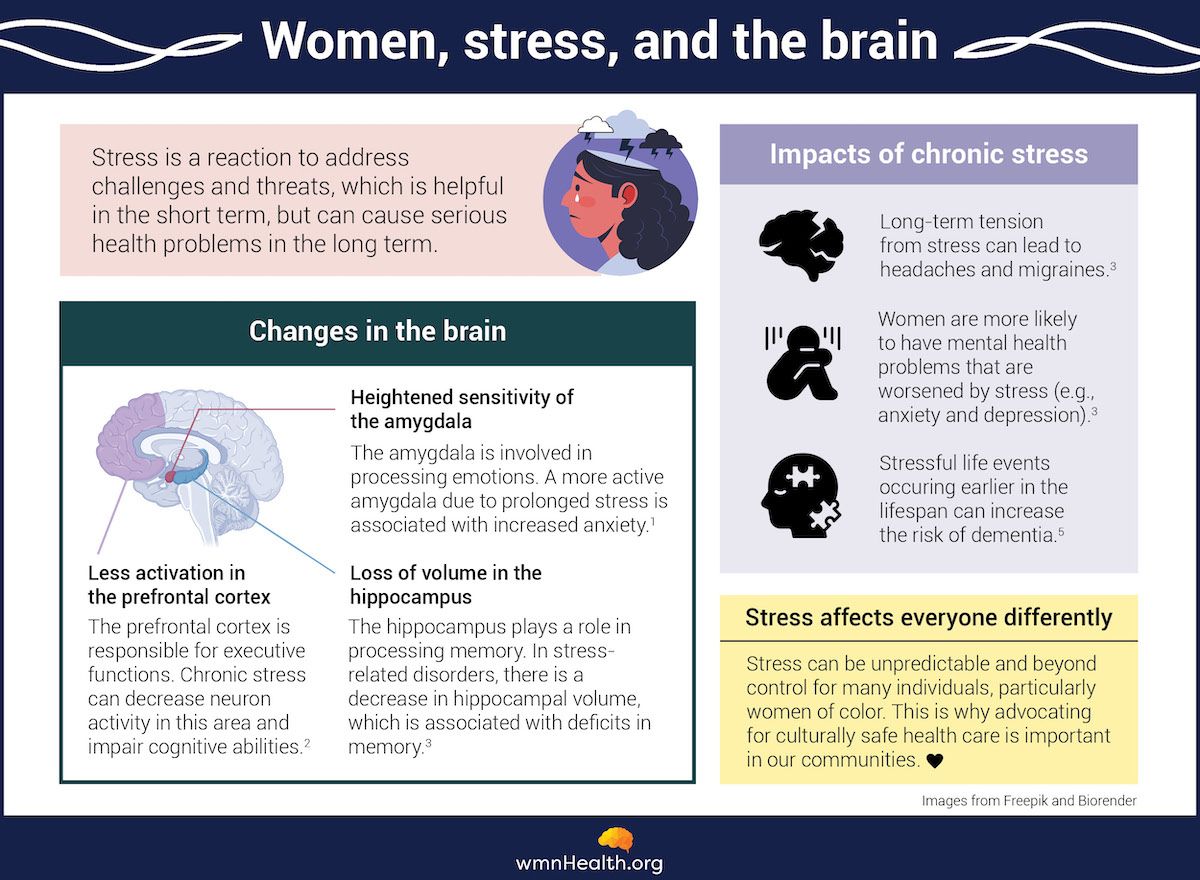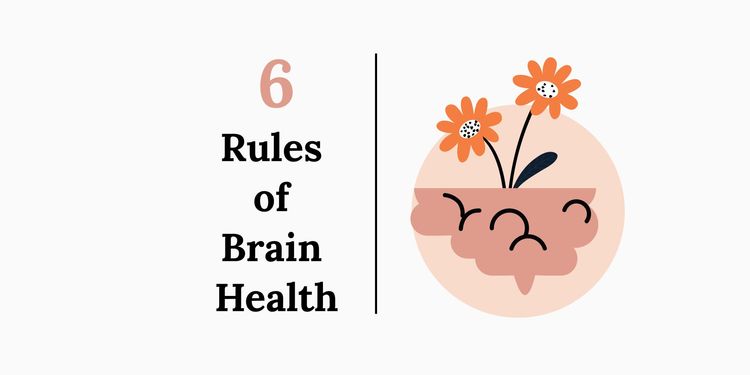
Sep 20, 2023, 4:05 am UTC
2 min
Created by
Stressed Out? Discover how stress impacts your brain (and what to do about it)
This article covers:
- What is stress?
- How does stress affect the brain?
- How can you manage stress?
In the fast-paced and often demanding world we live in, stress has become an almost constant companion in our lives. But did you know that how we handle stress can significantly impact our brain health, particularly for women? Stress isn't just a fleeting discomfort; it's a potent force that can shape the architecture of our brains, influencing our cognitive abilities, emotional well-being, and even our overall health.
In this infographic, we look at impact of stress on the brain and its unique implications for women's brain health. Understanding and managing stress is one of the best ways to safeguard your cognitive function, emotional balance, and overall well-being.
 Infographic by Cat Lau. References below.
Infographic by Cat Lau. References below.
10 Ways to manage your stress
There are evidence-based ways women can help manage stress. But remember, stress affects everyone different and it may take some experimentation to find the most effective methods for your unique needs.
-
Regular exercise: Engaging in physical activity, such as aerobic exercises or yoga, can reduce stress hormones and stimulate the production of endorphins, which are natural mood lifters.
-
Mindfulness meditation: Mindfulness-based practices, like meditation and deep breathing exercises, have been shown to decrease stress, anxiety, and improve overall emotional well-being.
-
Social support: Maintaining strong social connections and seeking support from friends and family can buffer the effects of stress and provide emotional relief.
-
Restorative sleep: Prioritizing good sleep hygiene and ensuring adequate rest is crucial, as insufficient sleep can exacerbate stress and negatively impact cognitive function.
-
Healthy diet: A balanced diet rich in fruits, vegetables, whole grains, and lean proteins can provide the nutrients needed to support both physical and mental health.
-
Time Management: Effective time management and setting realistic goals can help reduce the pressure and stress associated with a hectic schedule.
-
Engaging in relaxing hobbies: Pursuing hobbies or activities that bring joy and relaxation, such as reading, painting, or gardening, can be effective in managing stress.
-
Positive self-talk: Practicing positive self-talk and challenging negative thought patterns can help reframe stressors in a healthier perspective.
- Setting boundaries: Learning to say "no" and establish boundaries in both personal and professional life can reduce the stress associated with overcommitment and prevent burnout.
-
Journaling: Keeping a stress journal to track stress triggers and emotions can provide insight and help develop effective coping strategies.
Even when you are doing your best to manage it, stress can become overwhelming. Consult with a healthcare professional or therapist if you need guidance and support in managing stress effectively.
Infographic references
- Nicole C. Ferrara, Jaime E. Vantrease, Maxine K. Loh, Jolee A. Rosenkranz, J. Amiel Rosenkranz, Chapter 11 - Protect and harm: Effects of stress on the amygdala, Editor(s): Janice H. Urban, J. Amiel Rosenkranz, Handbook of Behavioral Neuroscience, Elsevier, Volume 26, 2020, Pages 241-274.
- Bangasser DA, Valentino RJ. Sex differences in molecular and cellular substrates of stress. Cell Mol Neurobiol. 2012 Jul;32(5):709-23.
- "Stress and your health." Office of Women's Health, Department of Health and Human Services. (Accessed 15 September 2023)
- Luo J, Beam CR & Gatz, M. Is Stress an Overlooked Risk Factor for Dementia? A Systematic Review from a Lifespan Developmental Perspective. Prev Sci 24, 936–949 (2023).


